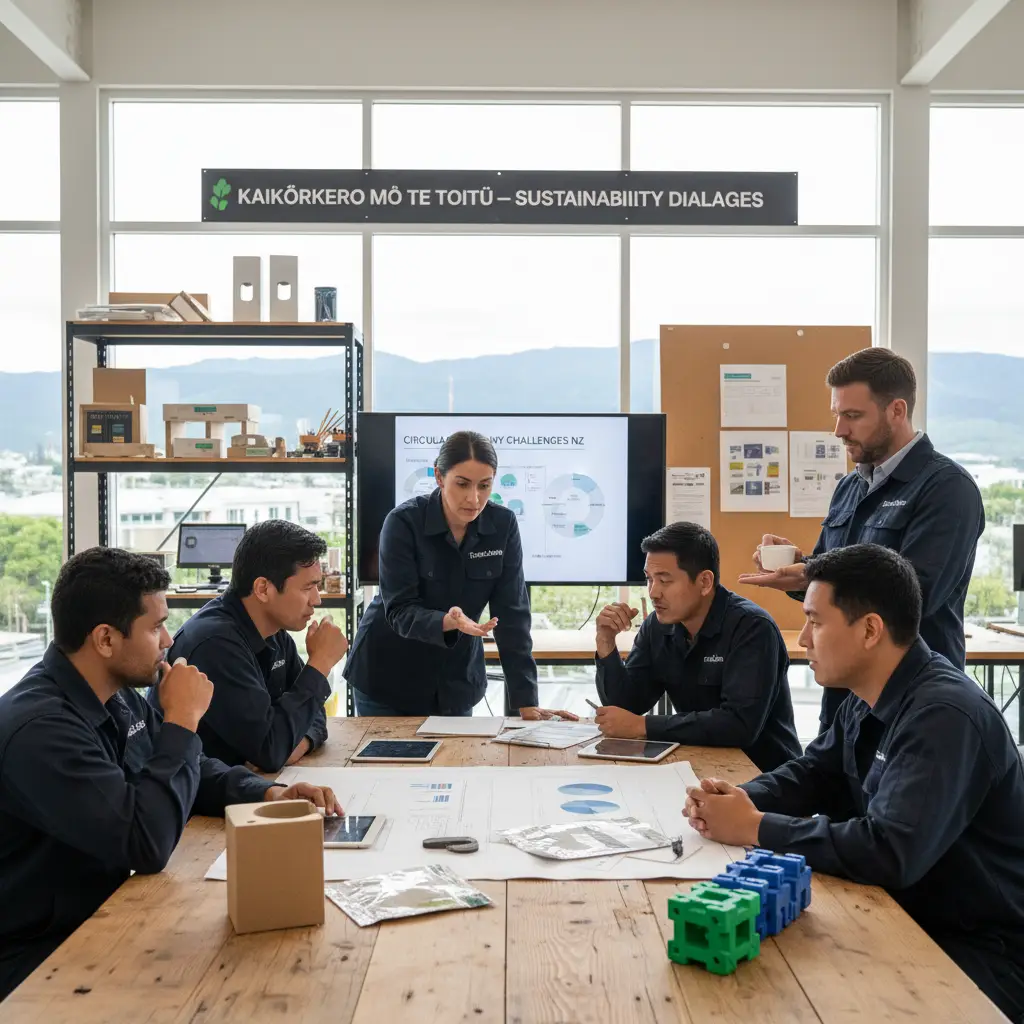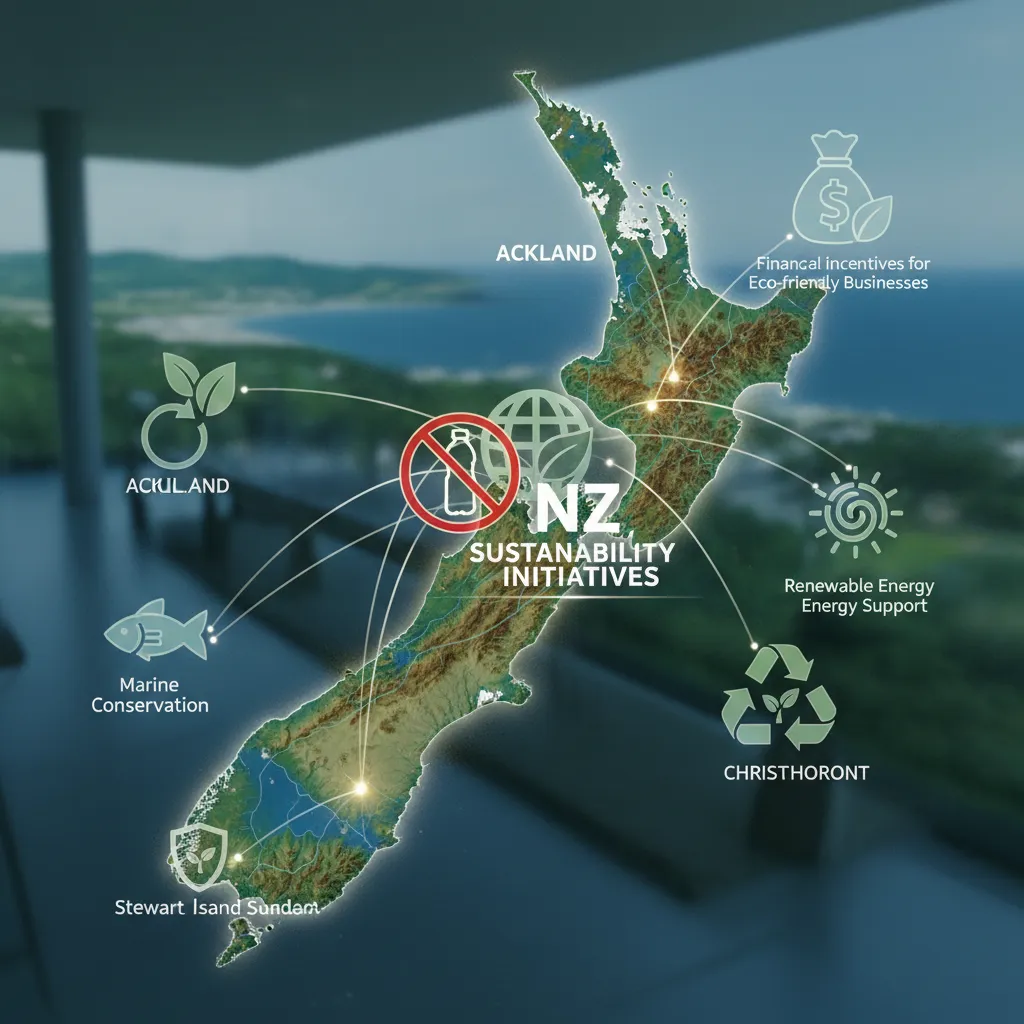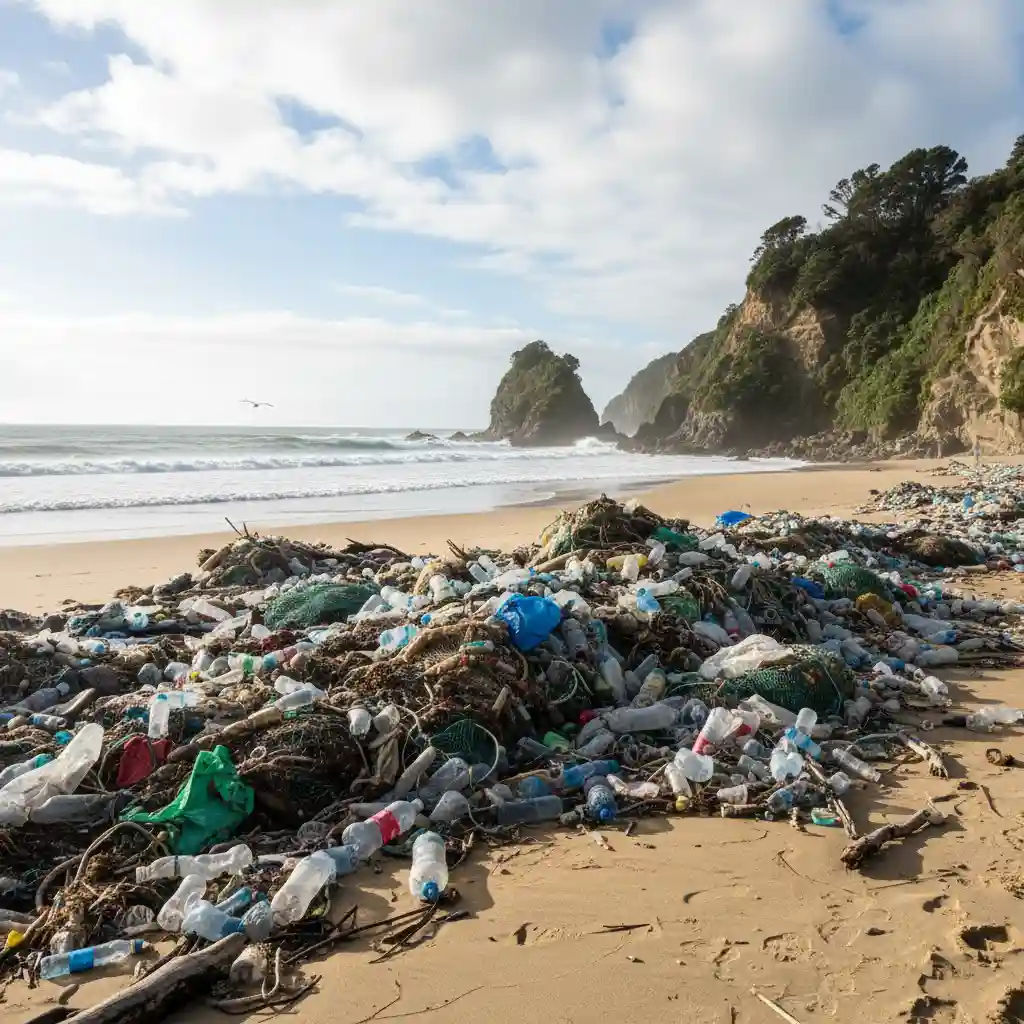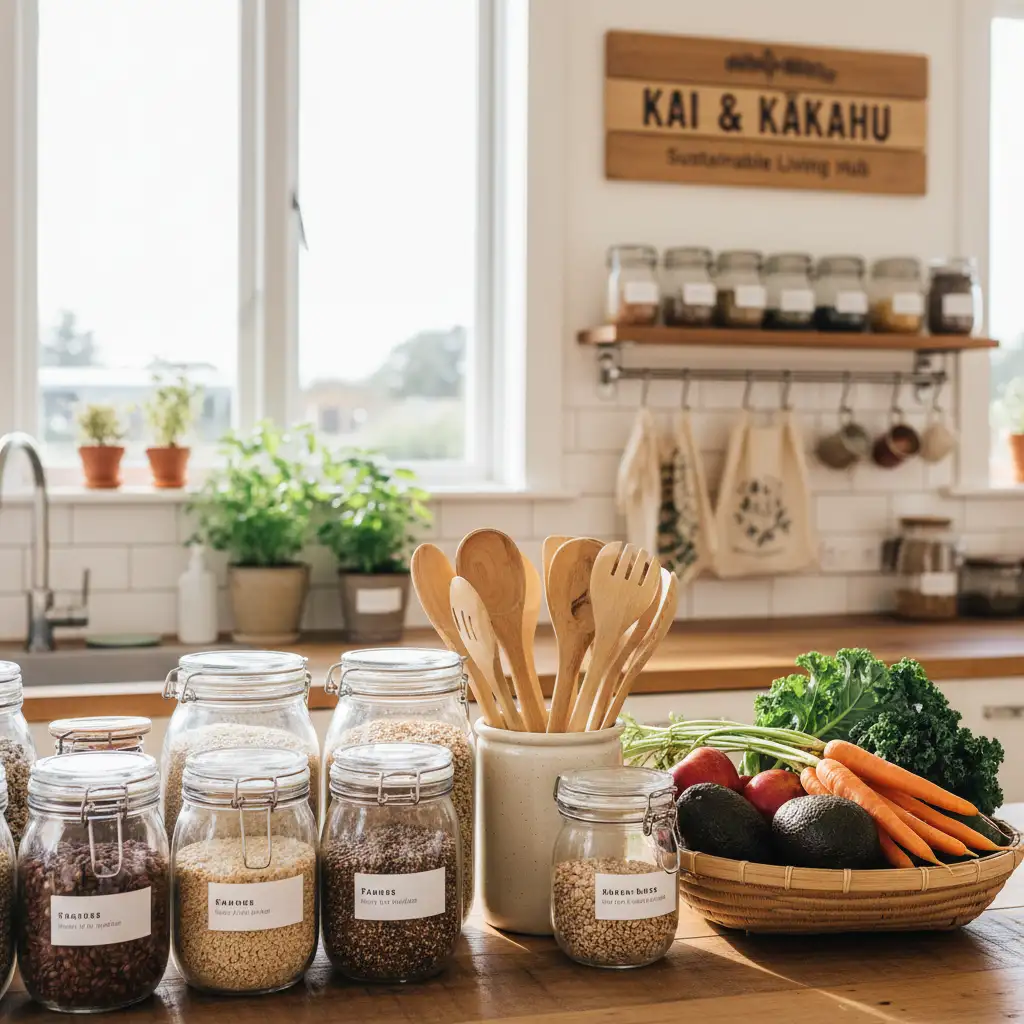Kiwis vs. Plastic: Business Wins and Hurdles in Sustainability
Navigating the journey towards a plastic-free New Zealand, one business at a time.
The majestic landscapes of Aotearoa New Zealand are a source of national pride, yet like many nations, we face a formidable adversary: plastic pollution. For businesses across the country, the battle of Kiwis vs. Plastic is no longer a distant environmental concern but a pressing economic and reputational challenge. Consumers are increasingly demanding sustainable choices, and regulations are evolving, pushing businesses to innovate and adapt.
This article delves into the dynamic landscape of sustainability for New Zealand businesses, exploring the remarkable wins achieved by pioneering companies and the significant hurdles that remain. From groundbreaking packaging solutions to complex supply chain dilemmas, we unpack what it truly means for a Kiwi business to embrace a plastic-reduced future.
The Plastic Problem in Aotearoa: A Business Perspective
New Zealand generates a significant amount of waste, with plastic being a substantial component. The visible impacts on our beaches and marine life are stark reminders of the scale of the issue. For businesses, this translates into mounting pressure from environmentally conscious consumers, advocacy groups, and an increasingly stringent regulatory environment.
From packaging to single-use items, plastic is deeply embedded in many commercial operations. Addressing this requires a holistic approach, moving beyond simply recycling to rethinking design, supply chains, and consumer engagement. The journey of Kiwis vs. Plastic is fundamentally a story of resourcefulness and responsibility.
Stat Snapshot:
~56% of New Zealand’s plastic packaging waste ends up in landfills. This highlights the urgent need for businesses to adopt circular economy principles and innovative waste reduction strategies.
(Source: Ministry for the Environment, 2021)
Ignoring the plastic crisis is no longer an option. Businesses that fail to adapt risk losing market share to more sustainable competitors and facing reputational damage. Conversely, those embracing change are discovering new opportunities for growth and brand loyalty.
Business Wins: Innovative Solutions and Success Stories
Despite the challenges, many New Zealand businesses are achieving remarkable progress in the fight against plastic. These wins demonstrate that sustainability isn’t just an ethical choice but a strategic business advantage.
Packaging Innovation
One of the most visible areas of change is packaging. Companies are moving away from virgin plastics towards recycled content, compostable materials, and reusable systems. Local examples include food manufacturers adopting home-compostable film for snacks or using refillable glass bottles for milk and beverages. This shift not only reduces waste but also resonates deeply with consumers seeking eco-friendly options.

Embracing Circular Economy Models
Beyond packaging, some businesses are redesigning their entire operations to minimize waste. This includes take-back schemes for products, repair services, and even ‘product-as-a-service’ models where items are leased rather than sold outright. These approaches significantly extend product lifecycles and reduce the demand for new plastic production.
“Our journey against plastic isn’t just about what we take out, but what we put back. It’s about creating value through responsible stewardship.”
Cost Savings and Efficiency
While initial investments can be high, many businesses find that reducing plastic leads to long-term cost savings. Less waste means lower disposal fees, and optimized packaging can reduce shipping costs. Furthermore, a strong commitment to sustainability can enhance brand reputation, attract ethical investors, and improve employee morale, all contributing to a healthier bottom line in the Kiwis vs. Plastic challenge.
Hurdles and Headwinds: The Challenges for NZ Businesses
The road to a plastic-free New Zealand is not without its bumps. Businesses face a multitude of challenges when trying to implement sustainable practices:
- Cost of Alternatives: Sustainable materials and innovative packaging often come at a higher price point than traditional plastics, impacting profitability, especially for small and medium-sized enterprises (SMEs).
- Supply Chain Complexities: Sourcing eco-friendly materials reliably and at scale within New Zealand or internationally can be challenging, leading to supply chain disruptions and increased logistics costs.
- Consumer Behaviour: While demand for sustainable products is growing, convenience and price often remain dominant factors for many consumers. Educating and shifting ingrained habits requires sustained effort.
- Infrastructure Limitations: New Zealand’s waste management and recycling infrastructure, particularly for newer compostable materials, can be inconsistent, limiting the effectiveness of some sustainable packaging solutions.
- Regulatory Uncertainty: While the government is acting, businesses need clarity and consistency in regulations to invest confidently in long-term sustainable strategies.

Cost Hurdle:
Up to 30-50% higher material costs for some compostable or recycled plastic alternatives compared to virgin plastic, posing a significant barrier for businesses operating on thin margins.
(Source: Industry Reports & Expert Interviews, 2022)
These hurdles highlight that while the spirit of Kiwis vs. Plastic is strong, systemic support and collaborative solutions are vital for widespread adoption.
Government Initiatives and Support
The New Zealand government plays a crucial role in accelerating the transition away from plastic. Key initiatives include:
- Plastic Bans: Phased bans on problematic single-use plastics (e.g., plastic bags, specific food service items) provide clear direction for businesses.
- Waste Minimisation Fund: Grants and funding are available for innovative projects that reduce waste, including those focused on plastic.
- Product Stewardship Schemes: Encouraging manufacturers to take responsibility for their products throughout their lifecycle, from design to end-of-life.
- Investing in Infrastructure: Efforts to improve national recycling and processing capabilities for diverse materials.

Businesses can leverage these initiatives by staying informed about policy changes, applying for available funding, and participating in industry-wide discussions to help shape future regulations.
The Path Forward: Strategies for a Plastic-Free Future
Achieving a truly sustainable future for New Zealand businesses requires a multi-faceted approach. Here are key strategies:
- Collaboration over Competition: Businesses, government, and consumers must work together to share best practices, pool resources, and advocate for systemic change.
- Innovation as an Investment: Continued investment in research and development for new materials, production processes, and circular economy models is essential.
- Consumer Education: Clear, consistent messaging about the benefits of sustainable choices and how to properly dispose of new materials is critical.
- Lifecycle Thinking: Businesses should assess the environmental impact of products from raw material extraction to disposal, seeking to minimize plastic at every stage.
The journey of Kiwis vs. Plastic is ongoing, demanding resilience, creativity, and a shared vision for a cleaner, greener Aotearoa. By embracing both the wins and the hurdles, New Zealand businesses can lead the way towards a truly sustainable lifestyle.

Frequently Asked Questions
What are the biggest challenges for New Zealand businesses in reducing plastic?
The primary challenges include the higher cost of sustainable alternatives, complexities in sourcing and managing new supply chains, inconsistent waste management infrastructure for novel materials, and the need to educate consumers to shift their purchasing and disposal habits.
How is the New Zealand government supporting businesses in sustainability efforts?
The government supports businesses through phased bans on problematic single-use plastics, the Waste Minimisation Fund for innovative projects, promoting product stewardship schemes, and investing in improved national recycling and processing infrastructure.
Can sustainable business practices truly be profitable for Kiwi companies?
Absolutely. While initial investments may be required, sustainable practices can lead to long-term cost savings through reduced waste, lower disposal fees, and optimized packaging. Furthermore, they enhance brand reputation, attract eco-conscious consumers, and can improve employee engagement, all contributing to profitability.
What role do consumers play in the ‘Kiwis vs. Plastic’ battle?
Consumers play a vital role through their purchasing decisions, opting for businesses committed to reducing plastic, supporting reusable schemes, and properly sorting their waste. Their demand for sustainable products drives businesses to innovate and adopt greener practices.
What is a ‘circular economy’ in the context of plastic reduction?
A circular economy aims to keep resources in use for as long as possible, extracting the maximum value from them whilst in use, then recovering and regenerating products and materials at the end of their service life. For plastic, this means moving away from a ‘take-make-dispose’ model to one where plastic is reused, repaired, and recycled efficiently to minimize waste and pollution.
References & Sources
- Ministry for the Environment (MfE). (2021). New Zealand’s Greenhouse Gas Inventory 1990–2020. (Note: Plastic waste data often linked to broader waste reports, MfE is the primary source for NZ environmental data).
- Sustainable Business Network (SBN). (Ongoing). Various reports and case studies on sustainable business practices in New Zealand.
- Packaging New Zealand. (Various publications). Industry insights on packaging trends and challenges.
- Government of New Zealand. (Current). Waste Minimisation Act 2008 & associated regulations.
- Ellen MacArthur Foundation. (Ongoing). Reports and initiatives on the circular economy and plastic pollution.

